Your weightlifting shoes are in your bag and you’re crossing your fingers that nobody will be doing biceps curls in the squat rack when you get to the gym. You’re amped up and ready to go — and you want to make sure nothing gets in the way of you and your weight plates for a solid training session.
Or maybe you’re completely lacking energy and motivation today, and you want to help get yourself into the right gear. Whatever your situation, you’ve probably wondered at some point or another about pre-workout. To the uninitiated, taking pre-workout to fuel your sessions may seem like the line in the sand between the weekend warriors and the competitive athletes.
[RELATED: Best Pre-Workout Supplements]
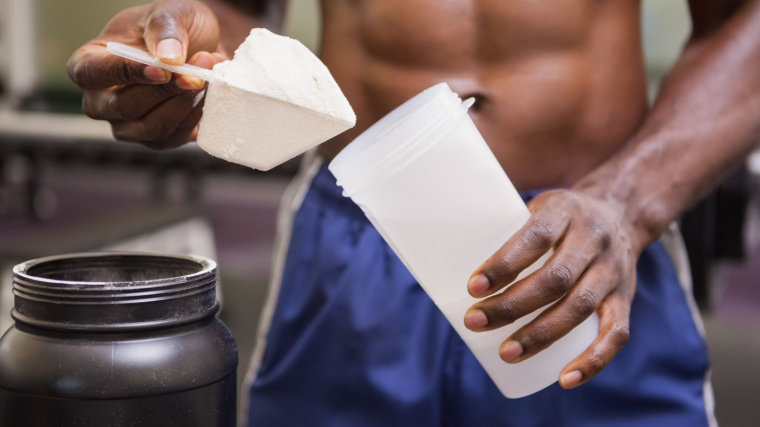
If you’re focused on fitness enough to want to try pre-workout, you’re probably thoughtful about what you put in your body. Here, you’ll get the scoop on the best natural pre-workout ingredients so you can get all the benefits with none of the artificial flavors.
What Is Pre-Workout?
A pre-workout is a supplement meant to enhance performance during your training session. Certain pre-workouts are meant to be all-purpose, while others hone in on a specific aspect of your training that you may want to improve.
For example, some pre-workouts are aimed specifically at increasing your mental focus, while others are meant to improve muscle mass and endurance. Generally speaking, most pre-workouts — except the non-stim pre-workouts — contain ingredients like caffeine that are meant to give you a big energy boost.
You typically take your pre-mixed supplement — or mix the pre-workout powder into your shake or water — about 30 or 45 minutes before your workout.
What Goes Into a Good Pre-Workout?
There are no set guidelines for pre-workout ingredients so companies are free to choose their own ingredients and dosages, which can vary widely. (1)(2)
You can typically expect some combination of ingredients like caffeine, branched-chain amino acids, beta-alanine, nitrates, different plant extracts, and creatine.
[Read More: Best Pre-Workouts for Men]
Many pre-workouts also assume you’re going to be working up quite a sweat while you’re hoisting all those barbells overhead. So they’ll come with electrolytes to support your hydration needs.
What Is a Natural Ingredient?
Supplements do not have to be approved by the U.S. Food and Drug Administration (FDA). Still, once they hit the market, the FDA can perform checks on companies regarding labeling requirements. In terms of the ability to call a product “natural,” the FDA states on its website:
The FDA has considered the term “natural” to mean that nothing artificial or synthetic (including all color additives regardless of source) has been included in, or has been added to, a food that would not normally be expected to be in that food.
[Read More: The Best Protein Powders for Men, Tested and Reviewed]
So if it’s got anything patented that was made in a lab, you probably won’t be considering it natural.
Remember that not everything that’s natural is necessarily healthy or desirable. For example, excess caffeine can cause jitters or nausea and may even increase anxiety in some lifters.
Best Natural Pre-Workout Ingredients
- Green Tea Extract (Caffeine)
- Watermelon Juice
- Beetroot Juice
- Betaine
- Cocoa Extract
- Turmeric
- Black Pepper
- Lion’s Mane Mushroom Extract
- Sugar
1. Green Tea Extract (Caffeine)
Looking for a way to get your caffeine that’s not quite coffee-based? Green tea extract may be a great pick for you. If you’re okay with having stimulants in your pre-workout, having some caffeine before your workout has been shown to increase strength, endurance, power, and speed. (3)
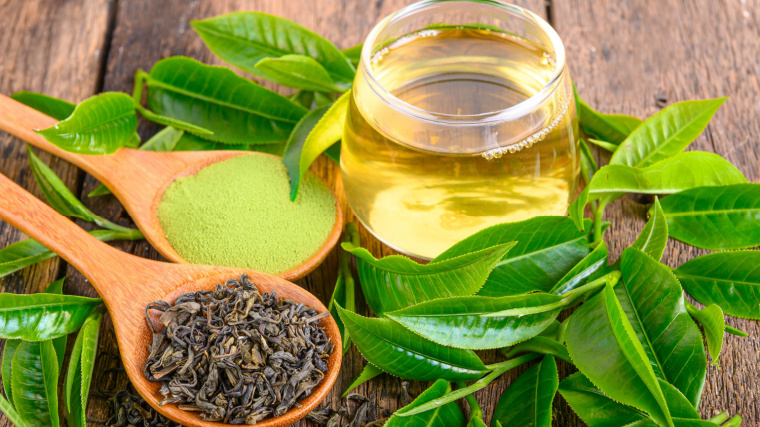
Green tea extract doesn’t just have caffeine, either. It also boasts the amino acid L-theanine — which is often touted as improving focus — and antioxidants, which may help support recovery after all that work. (4)(5) The L-theanine in green tea can also have a calming effect — which can be very helpful amidst all that jitters-inducing caffeine. (6)
2. Watermelon Juice
Watermelon contains the amino acid citrulline. Citrulline has been found to elevate the body’s level of nitric oxide — which is helpful because it helps relax your blood vessels, therefore increasing blood flow and lowering blood pressure. (7)(8) This dilation can have implications for improving blood flow to your muscles, which may stimulate nutrient dispersal and growth.
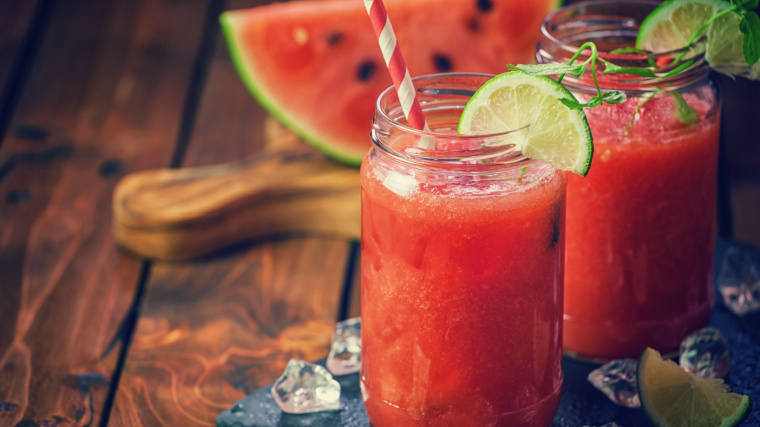
Citrulline is a non-essential amino acid, meaning that your body does produce some on its own. Still, due to its potential to give you a better pump, you might want a splash of extra watermelon goodness in your pre-workout.
3. Beetroot Juice
Beetroot juice comes from where it sounds like they come from — beets. In its pure form, beets contain nitrates, which can help increase endurance, improve blood pressure, and boost your oxygen uptake while you’re running or walking. (9)(10)
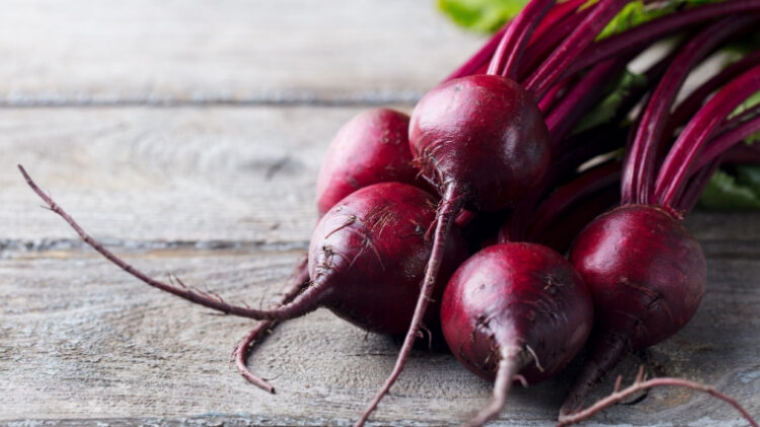
The more endurance and more efficient breathing you have, the better your workout is bound to be. Whether you’re doing high-rep sets or getting in much heavier, lower-volume work, efficiency is key. And beets, of all things, can help you get there.
4. Betaine
Betaine, also known as trimethylglycine, found in foods like spinach, beets, sweet potato, and quinoa. It is a non-essential nutrient — meaning that your body can produce it in some amounts. Your pre-workout can incorporate any combination of these ingredients or their extracts to provide this nutrient.
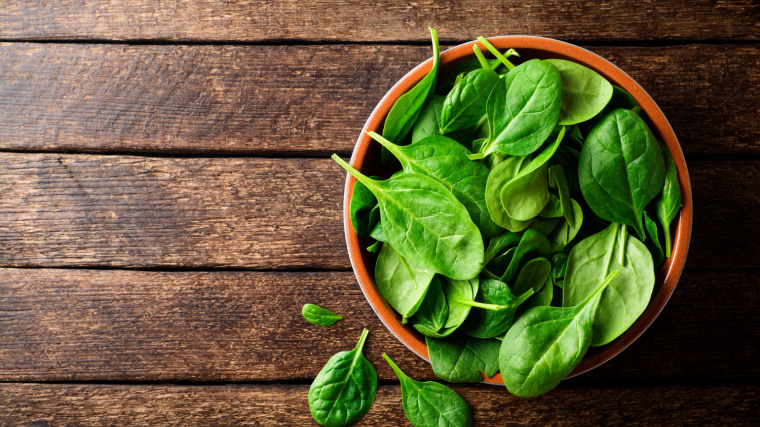
[Read More: The Best Mass Gainers, Tested by Experts and RD Approved]
Adding betaine to your pre-workout can potentially have a positive effect on muscle size, work capacity, and power. (11) If you’re about to perform an explosive workout, betaine might come in clutch when you’re trying to push your plyometrics to the max. When you’re about to get after it in the gym, it’s key to feel confident in your work capacity.
5. Cocoa Extract
It’s not just yummy. Cocoa extract contains high quantities of the antioxidant epicatechin. This is great news for your pre-workout because epicatechin doesn’t just increase the amount of nitric oxide in your bloodstream. It helps increase nitric oxide’s bioavailability, which means that the nitric oxide you have in your body can be more effective in the presence of epicatechin. (12)
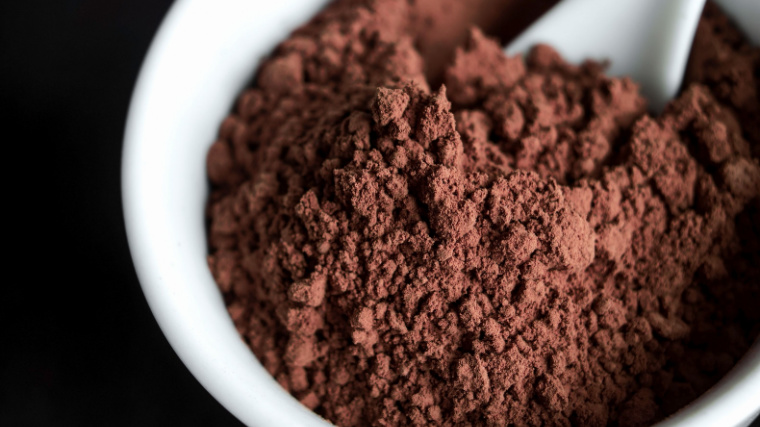
Epicatechin is also found in tea and apples. So if those ingredients show up in your pre-workout, there’s likely some epicatechin in there, too.
6. Turmeric
You might associate it more with tea or curries, but turmeric may be a helpful pre-workout ingredient, too. This earthy spice contains curcumin, which can significantly increase your levels of nitric oxide — which, again, is helpful for increasing blood flow to your muscles during your workout. (13)
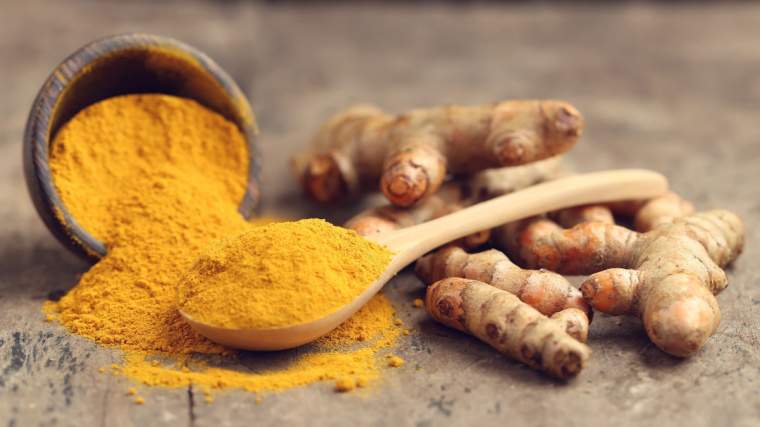
[Read More: Supplements That Might Help With Muscle Soreness]
Curcumin, a known anti-inflammatory, isn’t easy for your body to use on its own. If you’d like to include it in your pre-workout, look for your pre-workout to also include piperine — the active component of black pepper — which increases curcumin’s bioavailability. (14)
7. Black Pepper
Your pre-workout certainly adds some spice to your routine when you’re getting ready to lift. Adding some literal spiciness by way of black pepper — specifically, its active component piperine — can enhance the effectiveness of curcumin in your pre-workout. (14)
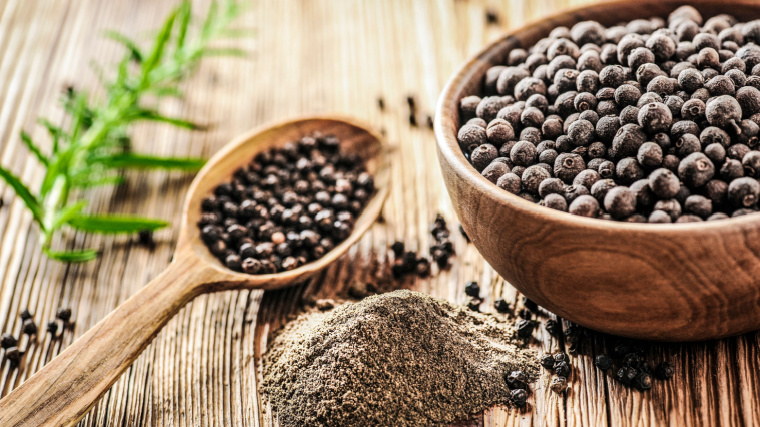
[Read More: Ways to Absorb Your Nutrients More Effectively]
Having piperine alongside curcumin won’t only help turmeric do its job. It can also help bolster your body’s immune system — this is significant because your immune system can take quite a beating when you hit it hard at the gym day after day. (15)
8. Lion’s Mane Mushroom Extract
Inflammation is not the universal bully that one might think. Inducing inflammation through exercise is a critical part of setting yourself up for muscle repair and regeneration — i.e., muscle growth. (15) That said, too much inflammation during your workout can reduce the quality of your overall performance. (15)
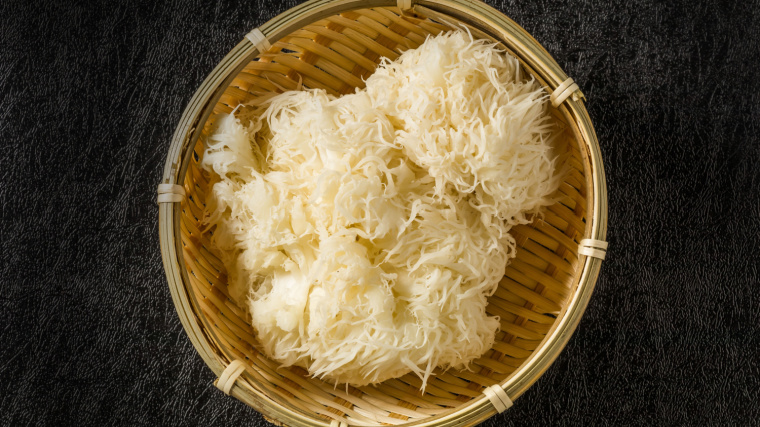
Enter lion’s mane mushroom extract. Research suggests that this fungal extract can act as a powerful anti-inflammatory. (16) By incorporating an anti-inflammatory like this into your pre-workout, you can help ensure that you’ll be able to push your training to the limit without hitting a point of no return when internal inflammation builds up.
9. Sugar
Yep, sugar is “natural.” And yes, it’s often highly processed and you might want therefore to avoid refined sugars. But things like agave, honey, and date syrup — while they’re “processed” to get them from their sources onto your counter — are indeed considered natural by many athletes. So if your pre-workout needs that dash of extra sweetness — and quick energy — you don’t have to neglect it.
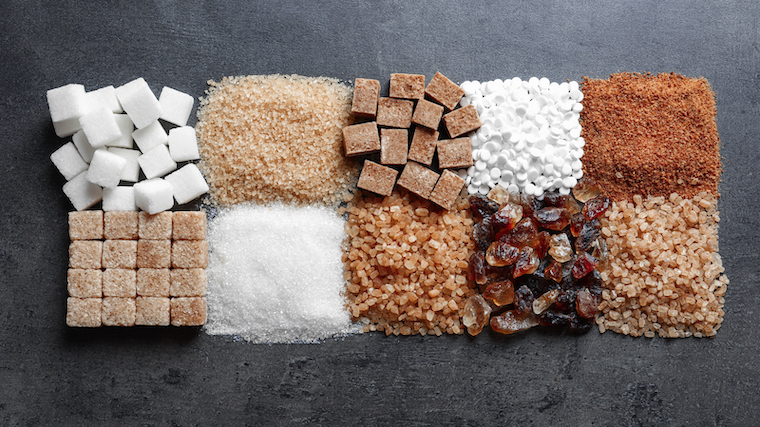
Ingredients to Avoid in a Natural Pre-Workout
If you’re on the hunt for a natural pre-workout, it’s likely that you’re looking to avoid any artificial sweeteners, flavors, or dyes. Keep in mind that a pre-workout may say that it’s sugar-free or that it contains no added sugar — but, to add sweetness, it may still include artificial sweeteners.
That might be alright with you, and it might not be. It doesn’t have to be all or nothing. Read the label and check out the ingredients for yourself before you hit that purchase button.
Artificial Sweeteners, Flavors, or Dyes
The answer is pretty much in the descriptor here — artificial dyes and such are precisely that — synthesized. And while you might not mind that in your store-bought pre-workout mix, you may want to keep it simpler in your DIY, homemade pre-workout recipe.
Creatine
Don’t get me wrong — creatine is a solid addition to your pre-workout. Not pairing resistance training with creatine can feel downright empty if you’re chasing a certain level of pump and hypertrophy. But if you’re aiming to keep it all-natural — not synthesized in a lab — you might want to avoid creatine.
[Read More: Best Creatine Supplements]
Because while creatine is a naturally-occurring substance in our bodies, you consume it from food sources like red meat and fish. Which…you probably don’t want in your pre-workout shake. Especially if you’re opting for a vegan source of creatine monohydrate, the supp will be healthy but not strictly “natural.”
Remember that nothing has to be all one way or the other — you can totally mix your watermelon juice with your creatine powder! No judgments here.
BCAAs
It’s pretty much the same situation with BCAAs, or branched-chain amino acids. These amino acids are essential, which means that your body doesn’t produce them on its own. You need to instead get them from your diet.
Any complete protein will include these — think some dairy products and firm tofu — but unless you’re wanting to blend up those items, you may get a bit away from the “natural” label. Then again, if you have a great blender, you can get a decent texture out of soft tofu and cottage cheese. So, this one kind of depends. But as a supplement, you’ll likely be getting something synthesized in a lab, especially if it’s vegetarian.
[Read More: The Best Protein Powders for Muscle Gain]
Again, that’s not necessarily a bad thing. But it’s something to consider if you want to opt for a more beetroot ingredient approach to what you consider “natural.”
Frequently Asked Questions
Your nutrition is arguably much more important than your set and rep scheme. Of course you’ve got questions. And we’ve got answers.
What is a natural substitute for pre-workout?
You can make your own natural homemade pre-workout with green tea extract, beetroot juice, and a variety of other ingredients you may well have in your pantry or refrigerator. The goal of pre-workout is to help you focus and give you an energy boost — along with some potential muscle-building boost — which you can get with the ingredients we’ve spelled out here.
How can you make your own pre-workout?
Putting together a quick and easy DIY pre-workout recipe isn’t all that difficult. For a caffeinated version, start with green tea extract. Add betaine (spinach) for a potential power and muscle growth boost, beetroot juice for better endurance, and anti-inflammatory curcumin (turmeric) and its spicy cousin piperine (black pepper). Balance your flavors with antioxidant cocoa powder and even some agave for a kick of taste and energy.
What is the main ingredient in pre-workout?
Different people (and different companies) use a variety of ingredients in their pre-workouts. But the most common ingredients tend to be caffeine (except in non-stim pre-workouts), betaine, and BCAAs. You can get most of this from tossing ingredients like green tea extract and spinach into your mix.
References
- Jagim AR, Harty PS, Camic CL. Common Ingredient Profiles of Multi-Ingredient Pre-Workout Supplements. Nutrients. 2019 Jan 24;11(2):254.
- Harty PS, Zabriskie HA, Erickson JL, Molling PE, Kerksick CM, Jagim AR. Multi-ingredient pre-workout supplements, safety implications, and performance outcomes: a brief review. J Int Soc Sports Nutr. 2018 Aug 8;15(1):41.
- Grgic J, Grgic I, Pickering C, Schoenfeld BJ, Bishop DJ, Pedisic Z. Wake up and smell the coffee: caffeine supplementation and exercise performance-an umbrella review of 21 published meta-analyses. Br J Sports Med. 2020 Jun;54(11):681-688.
- Giesbrecht T, Rycroft JA, Rowson MJ, De Bruin EA. The combination of L-theanine and caffeine improves cognitive performance and increases subjective alertness. Nutr Neurosci. 2010 Dec;13(6):283-90.
- Canals-Garzón C, Guisado-Barrilao R, Martínez-García D, Chirosa-Ríos IJ, Jerez-Mayorga D, Guisado-Requena IM. Effect of Antioxidant Supplementation on Markers of Oxidative Stress and Muscle Damage after Strength Exercise: A Systematic Review. Int J Environ Res Public Health. 2022 Feb 5;19(3):1803.
- Chen Z, Wang Z, Yuan H, He N. From Tea Leaves to Factories: A Review of Research Progress in l-Theanine Biosynthesis and Production. J Agric Food Chem. 2021 Feb 3;69(4):1187-1196.
- Sureda A, Córdova A, Ferrer MD, Pérez G, Tur JA, Pons A. L-citrulline-malate influence over branched chain amino acid utilization during exercise. Eur J Appl Physiol. 2010 Sep;110(2):341-51.
- Ochiai M, Hayashi T, Morita M, Ina K, Maeda M, Watanabe F, Morishita K. Short-term effects of L-citrulline supplementation on arterial stiffness in middle-aged men. Int J Cardiol. 2012 Mar 8;155(2):257-61.
- Murphy M, Eliot K, Heuertz RM, Weiss E. Whole beetroot consumption acutely improves running performance. J Acad Nutr Diet. 2012 Apr;112(4):548-52.
- Lansley KE, Winyard PG, Fulford J, Vanhatalo A, Bailey SJ, Blackwell JR, DiMenna FJ, Gilchrist M, Benjamin N, Jones AM. Dietary nitrate supplementation reduces the O2 cost of walking and running: a placebo-controlled study. J Appl Physiol (1985). 2011 Mar;110(3):591-600.
- Cholewa, J. M., Wyszczelska-Rokiel, M., Glowacki, R., Jakubowski, H., Matthews, T., Wood, R., … & Paolone, V. (2013). Effects of betaine on body composition, performance, and homocysteine thiolactone. Journal of the International Society of Sports Nutrition, 10(1), 39.
- Ignarro LJ, Byrns RE, Sumi D, de Nigris F, Napoli C. Pomegranate juice protects nitric oxide against oxidative destruction and enhances the biological actions of nitric oxide. Nitric Oxide. 2006 Sep;15(2):93-102.
- DiSilvestro RA, Joseph E, Zhao S, Bomser J. Diverse effects of a low dose supplement of lipidated curcumin in healthy middle aged people. Nutr J. 2012 Sep 26;11:79.
- Hewlings SJ, Kalman DS. Curcumin: A Review of Its Effects on Human Health. Foods. 2017 Oct 22;6(10):92.
- Miranda-Castro, S., Aidar, F. J., de Moura, S. S., Marcucci-Barbosa, L., Lobo, L. F., de Assis Dias Martins-Júnior, F., … & Nunes-Silva, A. (2022). The Curcumin Supplementation with Piperine Can Influence the Acute Elevation of Exercise-Induced Cytokines: Double-Blind Crossover Study. Biology, 11(4), 573.
- Hou Y, Ding X, Hou W. Composition and antioxidant activity of water-soluble oligosaccharides from Hericium erinaceus. Mol Med Rep. 2015 May;11(5):3794-9.
Editor’s Note: The content on BarBend is meant to be informative in nature, but it should not be taken as medical advice. When starting a new training regimen and/or diet, it is always a good idea to consult with a trusted medical professional. We are not a medical resource. The opinions and articles on this site are not intended for use as diagnosis, prevention, and/or treatment of health problems. They are not substitutes for consulting a qualified medical professional.
Featured Image: ESB Professional / Shutterstock